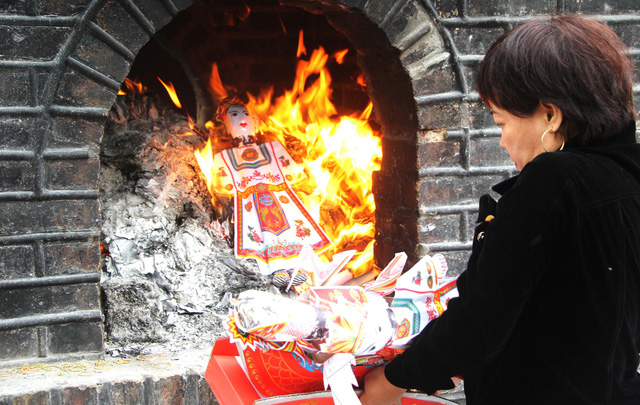The traditional act of burning joss paper has evolved and is currently facing disapproval from a number of Vietnamese people.
The custom of burning joss paper is guided by the belief that as the dead and gods are endowed with human qualities, they have the same needs and desires as the living.
Purposes of the practice vary, ranging from expressing one’s gratitude and respect to the spirits of relatives and gods, to asking them to facilitate the attainment of good fortune and wealth.
Joss paper, usually burned at pagodas and funerals, is extremely popular in the lead up to folk or religious celebrations.
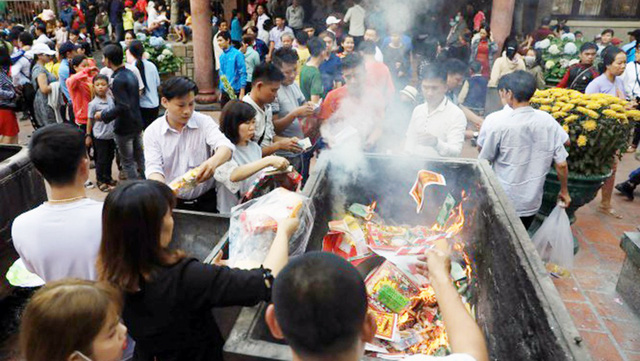 |
| Visitors burn joss paper at a famous pagoda in An Giang Province, southwestern Vietnam, during Tet. Photo: Tuoi Tre |
For instance, many residents in Ho Chi Minh City bought this kind of offering in the event honoring the Vietnamese God of Wealth, which was due on Sunday.
Sellers at a shop specializing in joss paper on Le Quang Sung Street in District 6, Ho Chi Minh City, were doing a brisk trade.
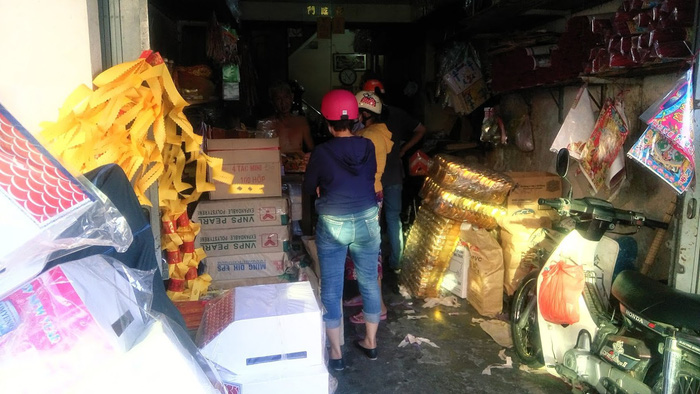 |
| A shop selling joss paper in Ho Chi Minh City. Photo: Tuoi Tre |
The wisdom amongst such buyers is that the more joss paper is burnt for the God of Wealth, the greater private affluence they receive in return.
But the practice has transformed in noticeable ways.
Its location is no longer limited to supposedly holy places like temples, but has included government offices and companies alike.
Almost every ceremony marking the beginning of construction of a building and bridge involves joss paper.
The type of item can take various forms bearing the mark of modern life, from yachts, multistory buildings, cars, to banknotes (especially U.S. ones) and even long-legged women.
Places across Vietnam have differing degrees of using joss sticks and one location can see the practice wane over time.
During a famous festival held between February 25 and 27 at Ong Pagoda in Bien Hoa City, Dong Nai, joss paper burning has nearly disappeared, according to Tran Quang Toai, vice-chairman of the province’s federation of science and technology societies.
The popularity of joss paper has diminished considerably at the majority of the pagodas in Ho Chi Minh City visited by Pham Thi Cat, a resident in Dong Nai.
In late February, the Buddhist Sangha of Vietnam issued an official internal document urging the religion’s followers nationwide to consign joss paper burning to the past, primarily on the ground that the Buddha did not mention such an action.
The proposal has been greeted with general approval recently, and is expected to herald a time when worldly spirit money falls from grace.
Some people suggested that the government should introduce a ban, or even a blanket one, on the use of joss paper.
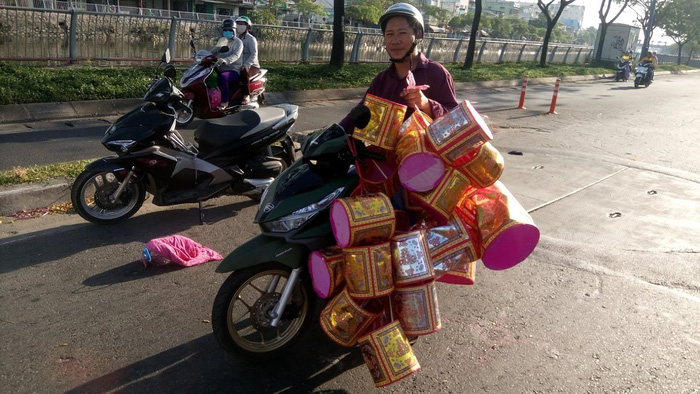 |
| A man carries joss paper items on Vo Van Kiet Street, District 5, Ho Chi Minh City. Photo: Tuoi Tre |
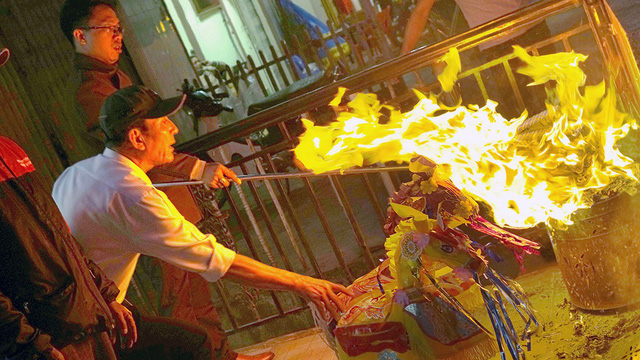 |
| Vietnamese men burn joss paper offerings at a residential area. Photo: Tuoi Tre |
Like us on Facebook or follow us on Twitter to get the latest news about Vietnam!



